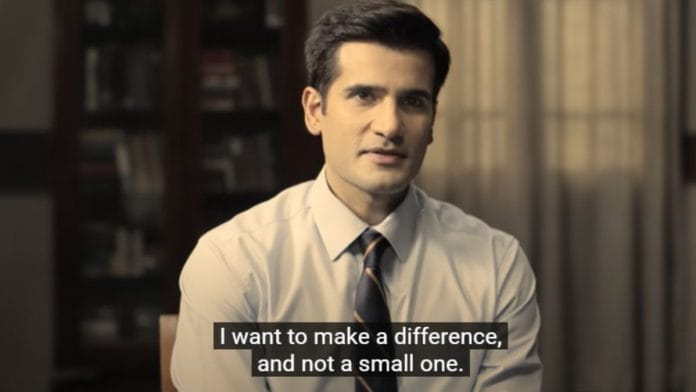Netflix’s series Khakee is the latest OTT story set in Bihar. Copverse and Bihar are currently OTT’s magic words, and filmmaker Neeraj Pandey makes the most of it. Khakee: The Bihar Chapter is based on IPS officer Amit Lodha’s book, Bihar Diaries: The True Story of How Bihar’s Most Dangerous Criminal Was Caught. The seven-episode series is directed by Bhav Dhulia and it dramatises Lodha’s experience of catching the ‘Gabbar Singh of Sheikhpura’.
The series starts against the backdrop of the 2005 Bihar assembly election and it is established that the state’s police service is severely compromised and politically aligned. The story goes back to the 1990s when young IPS officer Amit Lodha, played by Karan Tacker, makes his entry. It is his first posting. From his train being illegally stopped by some policemen to a farmers’ protest, Lodha has to quickly adapt to Bihar and its ways if he wishes to bring change and build his reputation.
The show also captures the parallel rise of his nemesis, Chandan Mahto (Avinash Tiwary), who starts out as a driver, gets involved in the high-profile kidnapping of a businessman’s son, and then eventually kills a local henchman Abhyuday Singh (Ravi Kishan) in jail to become the next big thing in Bihar’s Sheikhpura area. The arduous, and often frustrating task of Lodha catching Mahto, is the story of Khakee, and it is laden with power struggles, caste politics and crime.
Also read: Netflix’s Khakee star IPS officer Amit Lodha is Bihari Singham, nightmare for ganglords
Stupendous cast, limited scope
Tacker has previously worked with Neeraj Pandey in Special OPS (2020). Here, he plays a nearly flawless cop, pitted against the arrogance of Tiwary’s Mahto, who taunts the officer and kills without remorse.
Ashutosh Rana’s character is equal parts slimy and funny, and the veteran actor delivers a solid performance. Abhimanyu Singh, Jatin Sarna, Anup Soni and Ravi Kishan provide able support to the two main characters. The women are mostly relegated to the side, with Aishwarya Sushmita and Nikita Singh being supportive wives to their respective partners.
The show has a stupendous cast but fails to get the best out of them. The characters’ limited scope hampers their performance. But both Tacker and Tiwary manage to shine despite the limitations. Tiwary is the better of the two, perfectly essaying his transformation from an oppressed to an oppressor.
Familiar plot, fast pace
Khakee is Mirzapur-meets-Singham, albeit with a dose of real situations and events. In a cat-and-mouse game, Lodha captures Mahto, an amalgamation of various gangsters but a real one. The characters lack any shade of grey. Greed drives the black ones and almost untainted dedication to duty defines the white ones. It all seems unbelievable, in the quagmire of corruption and crime that Bihar is shown as.
The show is no Gangs of Wasseypur but manages to be entertaining and engaging. We love an honest cop narrative and it dials all the right buttons. But Khakee makes no attempt to rise beyond the formulaic ‘good vs evil’ tale. Any complexities that are hinted at in the moral landscape are never explored.
The well-structured show maintains the suspense of a story that has an almost obvious ending, but the thrill lies in watching it unfold. It is enjoyable, but not impactful. Despite the entire crime syndicate and political world of Bihar being demarcated and fuelled by caste, except for a couple of disparate powerful moments, there is no deeper exploration of the issue. It can be a good weekend binge-watch, but will not make you revisit it later.
(Edited by Ratan Priya)






